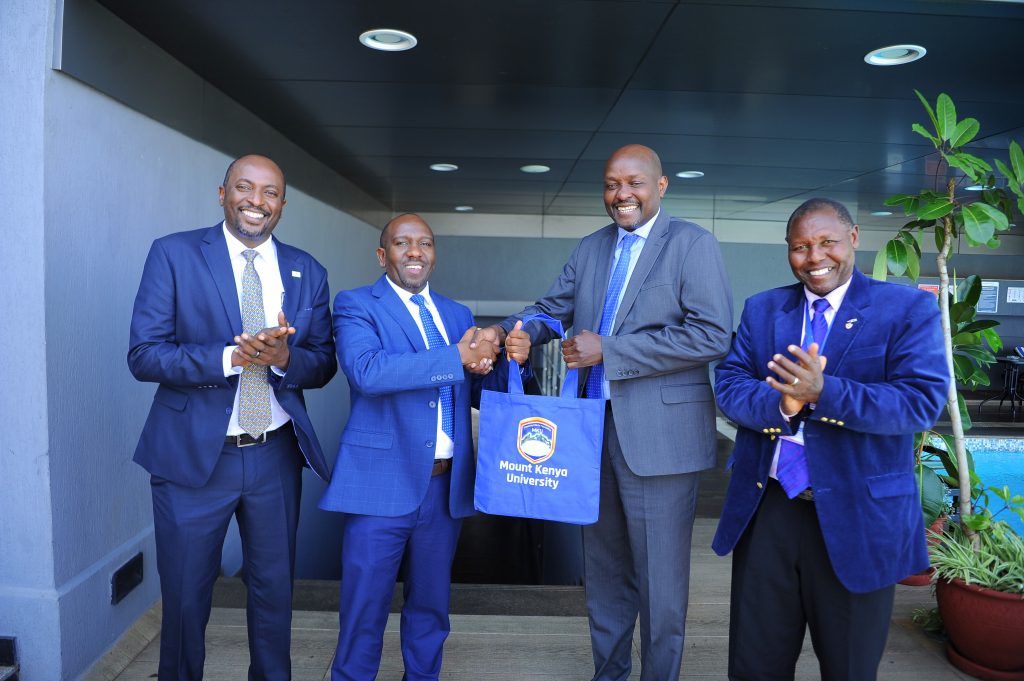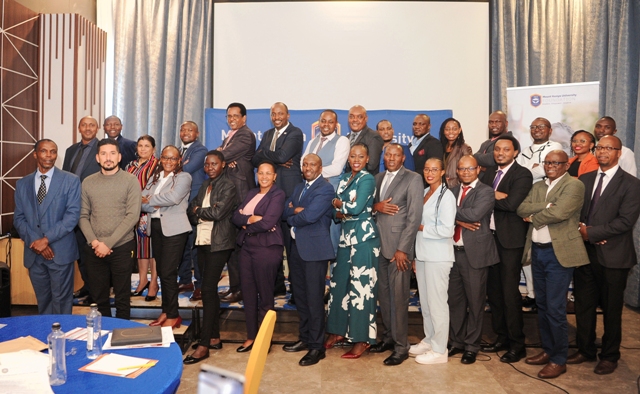The Mount Kenya University Foundation last week hosted a breakfast forum on scholarships and funding at a Nairobi hotel.
The event brought together government and non-governmental players to discuss ways of enhancing partnerships that will improve access to higher education particularly to bright students from economically disadvantaged backgrounds.
Among the participants were Higher Education Loans Board (HeLB), National Government Constituency Development Fund Board, Universities Fund, Equity Group Foundation, Plan International, Hope Worldwide, Islamic Relief-Kenya, Amara Charitable Trust, Digna Foundation, Elimisha Trust, Affecto Foundation, I&M Bank Foundation, Kenya Private Sector Alliance (KEPSA), Murang’a County Government, Teach For Kenya, Akothee Foundation, Compassion International, Equip Africa Institute and Openda Foundation.

The Forum came on the backdrop of the recent roll-out of the new Variable Scholarship and Loan Funding model for university students, which has brought changes in how university students pay their fees.
Previously, the government was funding university education through a Differentiated Unit Cost model- where its contribution to public universities was expected to be 80pc. But in light of changing costs of mounting academic programmes and economic circumstances, noted Geoffrey Monari, CEO Universities Fund who graced the Forum, the highest the government could afford was 66pc.
In 2022, the government could only raise 44pc. It was therefore prudent to introduce a new model that uses a Means Testing instrument to ensure university students receive government funding based on their financial ability to pay fees.
“The model we have now is student-centred. Foundations such as this one by MKU are doing a good job in supplementing the government’s efforts of ensuring no child is left behind,” said Mr Monari.
The Forum also discussed the possibility of establishing an association of grant makers and benefactors in education who will be a common, unified, an unequivocal voice in the area of scholarships and funding.
“We shall use the Association as a lobby for a possible future inclusion on the table of educational financing decision policy makers,” said MKU Foundation Executive Director John W. Koigi.
He added that the association will also explore the possibility of establishing a joint scholarship fund, which will be administered by a secretariat.
The Forum heard that the National Government through CDF had awarded scholarships worth Ksh 57 billion in the last five years. On its part, HeLB had disbursed over Ksh 131 billion to 1.3 million students.
Dr Vincent Gaitho, who chairs the KEPSA Education Sector Board challenged the two government bodies to set up a revolving fund to ensure the money is paid back by the beneficiaries to benefit the next generation.
During the Forum, Esther Akoth of Akothee Foundation granted MKU student Milly Nafula Ksh 50,000 towards her upkeep.
Nafula, who is a Bachelor of Medicine and Bachelor of Surgery (MBChB) student at MKU School of Medicine was granted a full scholarship by MKU Foundation in 2022.
NGOs Board Executive Director Mutuma Nkanata hailed the NGOs with programmes in education for the role they play in ensuring children and youth receive education.





